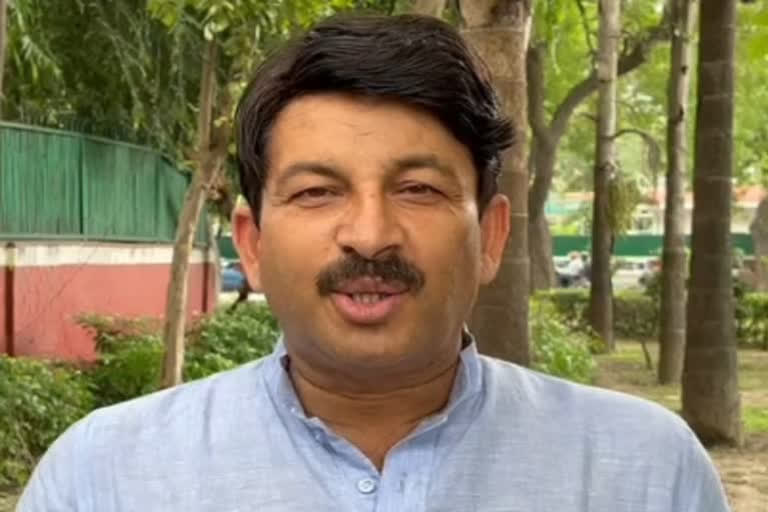New Delhi:BJP leader Manoj Tiwari will have to face a criminal defamation case filed by Delhi Deputy Chief Minister Manish Sisodia for allegedly levelling corruption charges against him after the Supreme Court on Monday dismissed the North East Delhi MP's plea challenging the summons issued by a trial court here.
Sisodia had filed the complaint against BJP leaders -- Members of Parliament Tiwari, Hans Raj Hans and Pravesh Verma, MLAs Manjinder Singh Sirsa and Vijender Gupta, and BJP spokesperson Harish Khurana -- for making corruption allegations against him over inflated expenditure for construction of classrooms in Delhi government schools.
Sisodia had stated the allegations made by the BJP leaders, jointly and individually, were false, defamatory, and derogatory, and with an intention to damage his reputation and goodwill. The BJP leaders had challenged the trial court's November 28, 2019 order summoning them as accused in the criminal defamation case filed by Sisodia. The Delhi high court had refused to quash the summons.
The top court rejected Tiwari's submission that the trial court should not have entertained a private complaint from Sisodia, Minister of a Union Territory, without following the special procedure prescribed in Section 199(4) of the Code of Criminal Procedure. Section 199(4) of CrPC provides for a special procedure with regard to the initiation of proceedings for prosecution for defamation of a public servant. The apex court said a minister or public servant can file a private complaint alleging defamation and need not follow the special procedure.
"The long history of the evolution of the legislation relating to prosecution for the offence of defamation of public servants shows that the special procedure introduced in 1955 and fine tuned in 1964 and overhauled in 1973 was in addition to and not in derogation of the right that a public servant always had as an individual. "He never lost his right merely because he became a public servant and merely because the allegations related to official discharge of his duties," the bench, comprising Justices S Abdul Nazeer and V Ramasubramaniam, said while dismissing Tiwari's plea.
On the appeal filed by BJP leader Vijender Gupta, challenging the summons, the top court said 24 questions posed by him cannot be said to be defamatory as these questions seek answers to certain facts relating to the construction of some buildings. "We do not know how a statement in a tweet that the answers of respondent No.1 to the questions posed by the appellant will disclose his scam, can be said to be defamatory. We are afraid that even if a person belonging to a political party had challenged a person holding public office by stating I will expose your scam, the same may not amount to defamation.
"Defamatory statement should be specific and not very vague and general. The essential ingredient of Section 499 (defamation) is that the imputation made by the accused should have the potential to harm the reputation of the person against whom the imputation is made," the bench said. The apex court said it was of the view that the statement made by Gupta (to the effect your answer will disclose your scam cannot be considered an imputation intending to harm or knowing or having reason to believe that it will harm the reputation of Sisodia.
"Though the High Court prima facie examined the tweets, it upheld the summoning order passed by the Magistrate, after simply extracting Section 499. The claim made by a person involved in politics that the answers provided by his rival in public office to the questions posed by him, will expose his scam, cannot be per se stated to be intended to harm the reputation of the person holding office. "The statements such as 'I will expose you', 'I will expose your corrupt practices' and 'I will expose the scam in which you are involved, etc.' are not by themselves defamatory unless there is something more," the bench said. (PTI)
